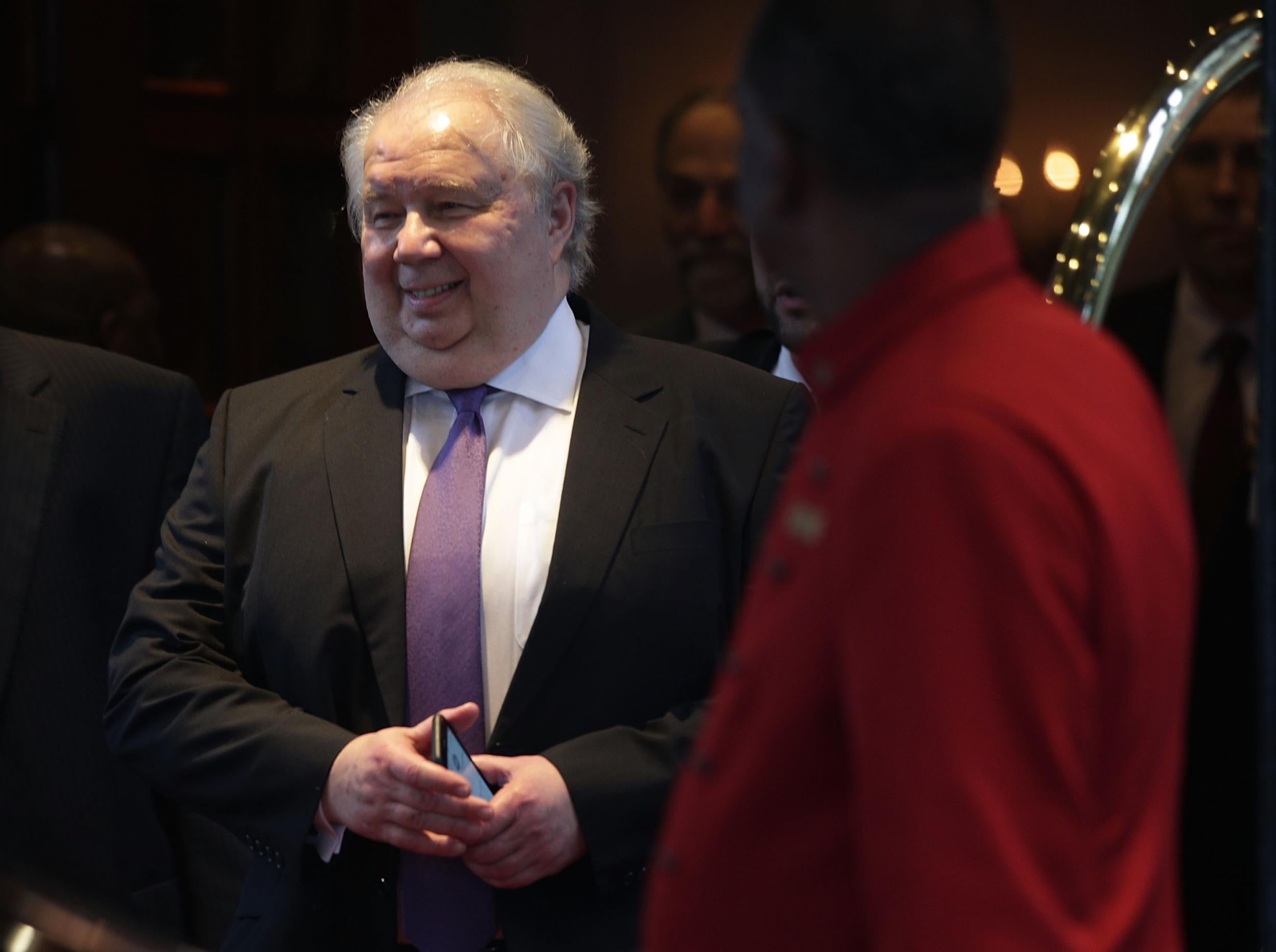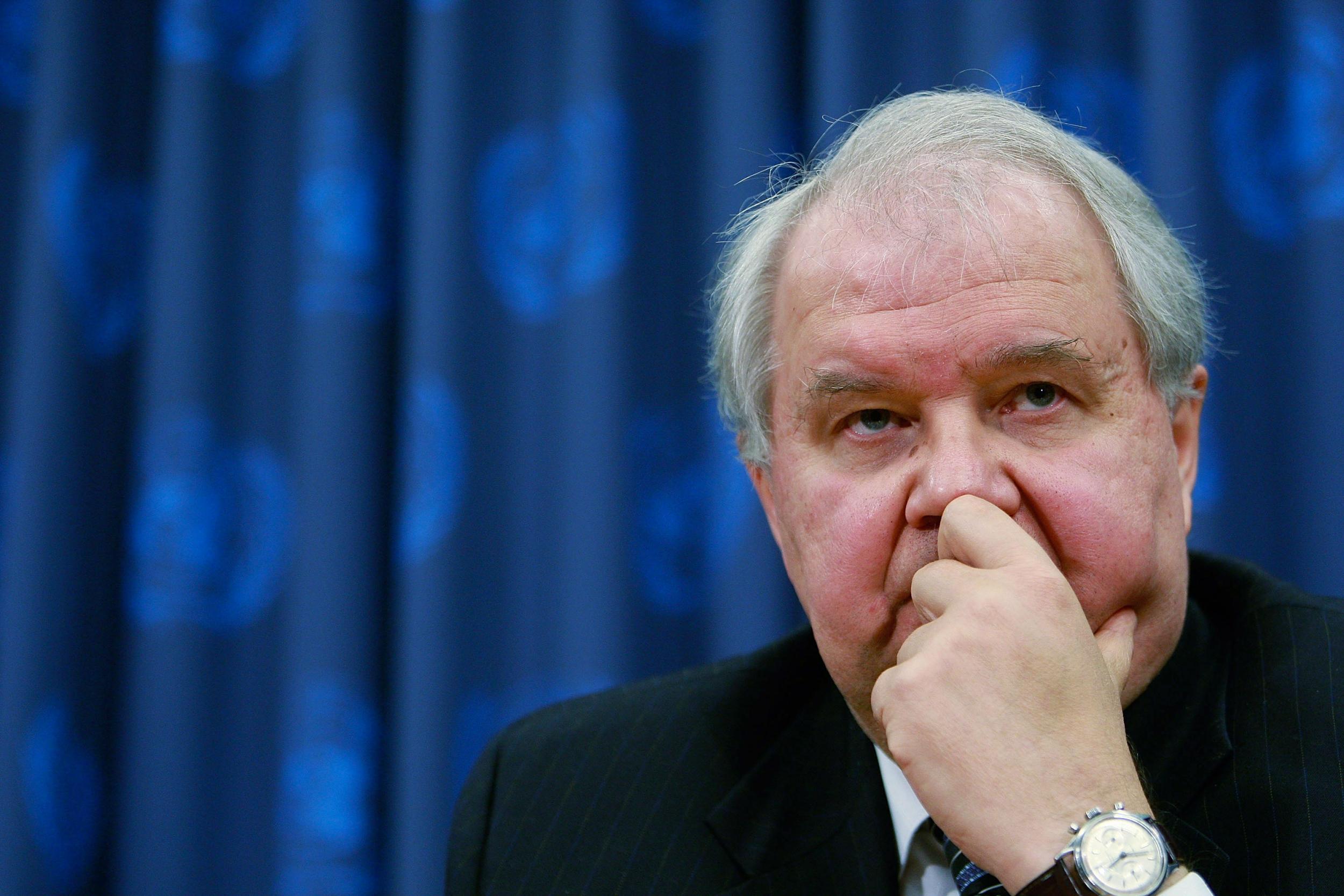Sergey Kislyak: Russian ambassador at centre of US election controversy ends eventful term
Mr Kislyak has made headlines throughout the Trump administration for his contacts with campaign officials

Sergey Kislyak, the Russian ambassador to Washington who became a household name amid allegations of Kremlin meddling in the US election, is officially leaving Washington.
The Russian embassy announced his resignation via Twitter, writing, “Ambassador S.Kislyak has concluded his assignment in Washington, DC”.
The post will be temporarily filled by Minister-Counselor and Deputy Chief of Mission Denis Gonchar while the Kremlin confirms a replacement. Deputy Foreign Minister Anatoly Antonov is slated to take over the position, but his nomination has yet to be approved.
Mr Kislyak has previously served as Russian ambassador to Belgium and permanent representative of Russia to Nato in Brussels. He has worked for the Russian Foreign Ministry since 1977.
The 66-year-old diplomat, who was appointed ambassador to the US in 2008, has developed a much higher profile in recent months, thanks to the intrigue surrounding his home country and the Trump administration.
Days before the embassy announced his departure, for instance, The Washington Post reported that US intelligence had intercepted conversations between Mr Kislyak and Moscow concerning US Attorney General Jeff Sessions.
The intercepted communications purportedly reveal that the ambassador and Attorney General had discussed campaign-related matters, including issues important to Moscow, over the course of the Trump campaign. Mr Sessions, the former senator from Alabama, has previously claimed he met with Mr Kislyak only in his capacity as a US legislator.
Mr Sessions has already recused himself from the Justice Department’s Russia probe, after failing to reveal multiple meetings with Mr Kislyak over the course of the campaign.

Mr Kislyak also played a role in the downfall of former national security adviser Michael Flynn, who stepped down after it was revealed that he had misled the Vice President and others as to the extent his conversations with Mr Kislyak.
One of those conversations, it was recently revealed, included Mr Trump’s son-in-law, Jared Kushner. The two men met Mr Kislyak at Trump Tower in December 2016 to discuss setting up a private back-channel for communications between Washington and Moscow, The New York Times reports.
Mr Kushner failed to include this meeting in his initial security clearance paperwork, but later disclosed it, along with several other phone calls with the ambassador.
The Russian government denies any interference in the US election, and Mr Trump has decried any accusations of collusion as a “witch hunt”.
Join our commenting forum
Join thought-provoking conversations, follow other Independent readers and see their replies
Comments
Bookmark popover
Removed from bookmarks